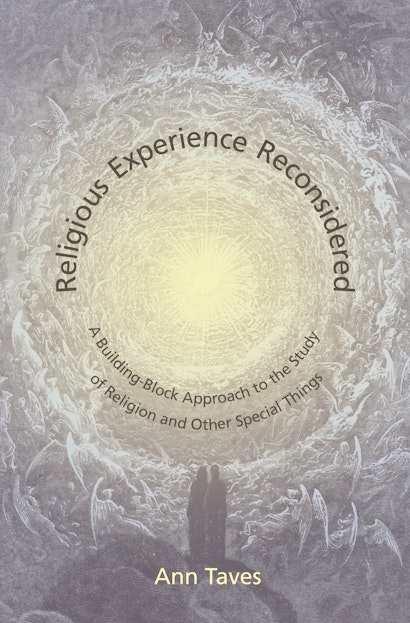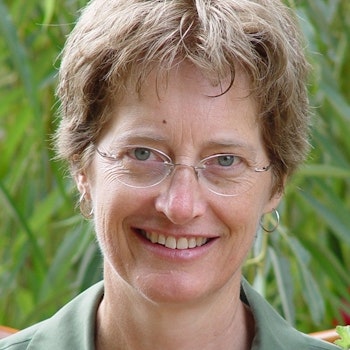The essence of religion was once widely thought to be a unique form of experience that could not be explained in neurological, psychological, or sociological terms. In recent decades scholars have questioned the privileging of the idea of religious experience in the study of religion, an approach that effectively isolated the study of religion from the social and natural sciences. Religious Experience Reconsidered lays out a framework for research into religious phenomena that reclaims experience as a central concept while bridging the divide between religious studies and the sciences.
Ann Taves shifts the focus from “religious experience,” conceived as a fixed and stable thing, to an examination of the processes by which people attribute meaning to their experiences. She proposes a new approach that unites the study of religion with fields as diverse as neuroscience, anthropology, sociology, and psychology to better understand how these processes are incorporated into the broader cultural formations we think of as religious or spiritual. Taves addresses a series of key questions: how can we set up studies without obscuring contestations over meaning and value? What is the relationship between experience and consciousness? How can research into consciousness help us access and interpret the experiences of others? Why do people individually or collectively explain their experiences in religious terms? How can we set up studies that allow us to compare experiences across times and cultures?
Religious Experience Reconsidered demonstrates how methods from the sciences can be combined with those from the humanities to advance a naturalistic understanding of the experiences that people deem religious.
Awards and Recognition
- Winner of the 2010 Distinguished Book Award, Society for the Scientific Study of Religion
- One of Choice's Outstanding Academic Titles for 2010
"Taves' masterful work shows us the way between the extremes of particularism and the errors of decontextualized essentialist analyses of experiences deemed religious."—Patrick McNamara, Institute for the Biocultural Study of Religion
"The theory that Taves proposes will rank among the very best because of its clarity and coherence of argument, its concise terms and substantive concepts, and its potential for stimulating research and writing in the field of religious studies. . . . This book is clearly written, intellectually stimulating, and theoretically exciting."—Choice
"[F]ascinating. . . . [A] superb achievement that connects the study of religion to other disciplines. . . . The book . . . will serve as a benchmark in the field of religious studies for many years to come."—Luke Penkett, Ministry Today
"Anyone remotely interested in the topic of religious experience will find this a worthwhile book. . . . [S]mart, fair, and well-informed theoretical reflections, like Taves', when theologically read, can at least help to sort out some of the issues involved and, if nothing else, provide cautionary reminders of the immense potential for human-driven idolatry, even sometimes in the name of worship of the true God."—Christian Smith, Books & Culture
"[T]his is a must-read volume for anyone serious about analyzing religious experience. Without being in any sense the final word, it definitely furthers the field."—James V. Spickard, Sociology of Religion
"[Taves's] book is valuable both as a survey of the state of the field for each of these topics and for offering a constructive proposal in each arena. Especially valuable is Taves's engagement with the literature on cognitive science, psychology, and neuroscience, as these fields are gaining influence in the academy as a whole and are increasingly becoming relevant to humanistic disciplines."—Stephen S. Bush, Journal of Religion
"By providing an inventive and relatively accessible set of . . . building blocks, [Taves] allows those of us who study religion and religious practices to do so within manageable, malleable and happily imaginative frameworks—something so important to many mired in the same old trough. Replete with charts and illustrations that clarify these building blocks even more, Taves' work is a particular boon to any interested in examining the 'specialness' of liturgical experiences with fresh eyes."—Edward Foley, Worship
"Taves speaks and thinks across a broad chasm: she labors skillfully, logically, and methodically to hammer out a set of analytical tools and theoretical vocabularies that will allow scholars of religion to converse with the sciences, in particular with cognitive scientists and neuroscientists."—Jennifer Scheper Hughes, Anglican and Episcopal History
"Taves' study is important in the discourse of the phenomenon of religion, but also in the conversation between faith and science. It clearly illustrates how difficult a task it is to study religion without losing the value of that which is believed and understood as being the sacred."—G. A. Duncan, Studia Historiae Ecclesiasticae
"Ann Taves's ambition in this lucid, elegantly structured, and prodigiously researched work is to render transparent the cultural, sociological, and psychological processes by which certain experiences are deemed religious—and she succeeds admirably. With its deft deployment—and creative integration—of recent theories of mind and culture, the social and the psychological, Religious Experience Reconsidered will quickly establish itself as an indispensable resource for those of us determined to think past the otiose boundary between 'inner' experience and 'outer' environment that so bedevils scholarship in religious studies. Historians, anthropologists, and psychologists of religion will find this a stimulating and generative work, a helpful conversation partner in their own researches."—Robert A. Orsi, author of Between Heaven and Earth: The Religious Worlds People Make and the Scholars Who Study Them
"Taves deals, at one and the same time, with two of the most pressing and contentious issues in the field of religious studies today: the viability of the term 'religion' as a category of critical scholarly inquiry, and the potential contributions and challenges of cognitive neuroscience to the humanistic study of religious experience. Religious Experience Reconsidered is an erudite, provocative, timely, and significant contribution to the theoretical underpinnings of the discipline of religious studies writ large."—Robert Sharf, University of California, Berkeley
"Taves offers a clear introduction to important debates and contested issues in the study of religious experience and a thoughtful and constructive position on these issues. Religious Experience Reconsidered makes an important contribution and should stimulate further discussion on this topic. I don't know of any other book like it."—Wayne Proudfoot, Columbia University
"This is a terrific book. The basic message is that cognitive science and neuroscience aren't scary but useful, and humanists can not only understand the ideas but see their relevance, engage with their authors, and contribute to their literature. Taves exemplifies the interdisciplinary spirit in which such work must take place."—Tanya Marie Luhrmann, Stanford University


